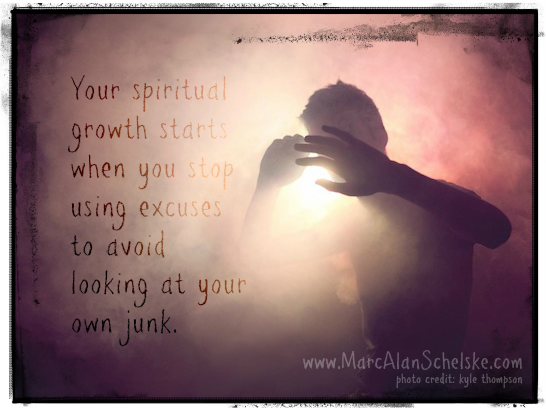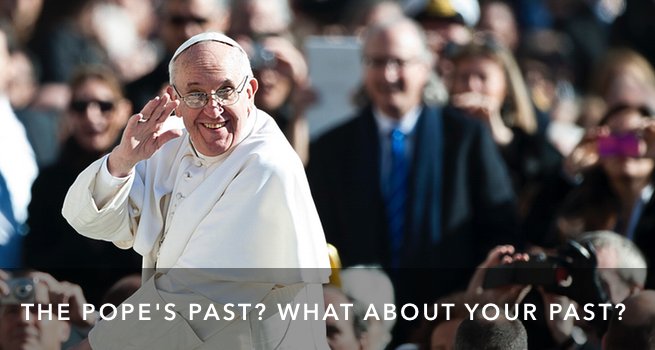So, is the Pope a kidnapper?
On March 13th the white smoke billowed and the world was introduced to the new leader of the Catholic faith. Cardinal Jorge Mario Bergoglio went into the conclave and came out Francis the 1st.
The news was first celebratory. The first pope from the Americas! A Latin American pope! A pope who is an advocate for the poor! A pope who seems, from credible sources, to not be blinded by pomp, power, and benefits. This seems stunning and full of hopeful possibilities.
Then something happened. The talking heads started talking about darker things. The pope had tied to the military government of Argentina during the “Dirty War” in the ’70s. The pope failed to advocate for kidnapping victims, or maybe, had even delivered those victims to the kidnappers to be tortured!
Now, I can’t speak to the new pope’s past. As a dyed in the wool protestant, I’m a little down on the idea of popes in general. But as I heard the news developing, I remembered that the very same thing happened when Cardinal Ratzinger became the pope. Within days of his appointment, the news was swamped in stories about the cardinal’s youthful connections to the Nazis.
The pope is for many people a spiritual leader. He leads the largest Christian denomination. Many Catholics still consider his official words to be infallible. The idea that such a leader has blood on his hands is deeply disturbing, right?
Well, maybe.
The Pope’s Past Is A Trap!

The media has been breathlessly asking: Does the new pope have blood on his hands?
I don’t know, but I can assume that he likely does. (What?! Yes… keep reading.) Even if he’s a truly godly man, fully committed to the care of the oppressed, and has been so his entire life unwaveringly, he still has blood on his hands. How do I know that? Because he’s human and he lives within a human institution, trying to do good things in a complicated world.
Did Cardinal Ratzinger have Nazi ties? Probably so. For God’s sake, every single German over the age of 75 has Nazi ties of some kind. They were sort of mandatory at the time and most everyone who refused them got killed for it. For the same reason, I can assume that Pope Francis I did some questionable things in a very difficult and violent time in his country. Or maybe I’m completely wrong about this.
It’s not just the pope who gets this treatment. Every spiritual leader gets it. We do it to anyone our lives who get elevated to something above us. Are they deserving? Are they the kind of person who ought to have this authority? Are they good enough? And always, are they hypocrites?
The Double Standard of Past Choices
When we do this, it reveals more about us than about the object of our inspection. I’ll call it the Double Standard of Past Choices. Here’s how it goes.
- Everyone has a past.
- My past is misunderstood, or forgivable, or irrelevant because of how much I’ve changed.
- Other people’s past, in contrast, defines who they are and who they can become.
That, my friends, is called hypocrisy. And ultimately, it doesn’t matter one bit. The question of whether the pope’s hands are clean or not is a trap. Here’s why:
Other people’s failures are a convenient distraction from looking where you ought to look: at yourself. It’s all the better if those failures are enormous, and the person is a public figure (like… you know, the pope). Make no mistake. This distraction serves you. Looking at your own stuff is often painful.
But if you truly want to grow, you must embrace this truth: Spiritual growth starts when you stop using excuses to avoid looking at your own junk.

The best, most convenient, and most righteous-feeling excuse to avoid looking at my junk is fixating on yours. The more I can be indignant about how terrible you are, the less my behavior matters. The more I can deconstruct your bad theology, the less I have to consider my own inconsistent and self-serving beliefs. When I look at you with an eye of evaluation, I can ignore my own truth.
I am also a walking contradiction, inconsistent and lacking integrity. Too often my best, most Godly decisions are motivated by my own pride. Worse, I’ve done shameful things that, were they public knowledge and used to determine the measure of my life, would disqualify me from any kind of respect.
So have you.
Judge or Grow. Choose one.
Judgement is comparison. Comparison poisons your spiritual & emotional growth.
This is true whether you’re comparing yourself against other people’s failures, or against their successes. Turning your eyes towards them takes your eyes off of your journey. This tendency runs deep in us, and it is one of the highest obstacles to a deeper spiritual journey.
In John 21 Peter, the disciple, looked at another person and asked such a comparison-based question. Instead of answering, Jesus re-directed. His’ answer gives us a path forward. Peter asked, “Well, what about that guy?” Jesus answered, “What is that to you? You must follow me”
Jesus’ words give us two simple reminders that will keep us on track.
- “What is that to you?” First, stop looking at the other person at all. Their terrible failures are of no importance to your journey. Their luck, or success or blessing have nothing to do with you. When you find yourself looking at someone else, hear Jesus’ words: “What is that to you?”
- “You must follow me.” Second, look to your own path. If you are a follower of Jesus, then follow Jesus. That’s where your eyes should be. Face your own weaknesses and failures and be honest about them. Confess your own sins, not someone else’s. Identify your own gifts, and passions without comparing yourself to anyone else. Take your own steps to seek a deeper relationship with God. Any time you spend on the successes or failures of others is time lost in your own journey.
So, does the pope have blood on his hands? I don’t know, but the only hands I’m qualified to be thinking about are my own.

I like your point that we discount our own past because we know how we have changed, but we fixate on others’ pasts and hold them accountable for their misdeeds without regard to how they may have changed. I just had an interesting thought on this. If we know that a person committed misdeeds, but we have no knowledge of them repenting or atoning for those mideeds, then yes, we judge them without regard to how much they have changed. But if we know they have publicly acknowledged, repented, and atoned for those misdeeds, I think we are willing to forgive and give them credit for having changed. Sure it is hypocrisy to refuse to imagine that a person could grow and become better. But it is utterly critical for a public figure to acknowledge their past and repent and atone where necessary. And of course, we could all benefit from such transparency in our own lives as well.
Hey Cherise,
I think public figures, like any of us, have an obligation to “come clean” and make things right. That’s not a question to me, but in these situations I don’t think that’s really what we’re asking for. I think our human condition moves us to simply want to take people “down a peg.” I think, as I wrote above, that this is a denial mechanism to protect us from facing our own flaws. I wonder if the world would be an altogether different place if we reversed the “Double Standard of Past Choices” so that we help ourselves to a very high standard, while giving every other person the benefit of the doubt.
By the way, thanks so much for engaging here on my blog. Your comments provoke my thinking and I really appreciate you taking the time to do it!
The Vatican by its very nature, cannot be transparent. The Pope, however, as a very public figure, could indeed acknowledge a past that is less than perfect and take responsibility for that past and move ahead with good deeds. (If that is possible given their archaic structure and belief system!) Whether the Pope and other figureheads within the church atone for their sins is not our problem. As long as the Catholic church has its impenetrable walls, we probably will never know the truth about the secretive inner sanctum and those that mull around within the walls. While I respect the right to practice religion in whatever form they wish, most of my friends who worship in the Catholic tradition simply take what they need from the church and live their lives irrespective of canon law. The Catholic church is a political structure and from what I know of it, has involved itself in world politics for good and for evil. Does the Pope have blood on his hands. I’d bet he does. Could he still be a force for change? We can only hope. But what do I know, I’m just a wandering Jew!
You are one of my favorite wandering Jews, Susie! Thanks for leaving your comment. I also hope this powerful guy has the ability to be a force for good in the world.